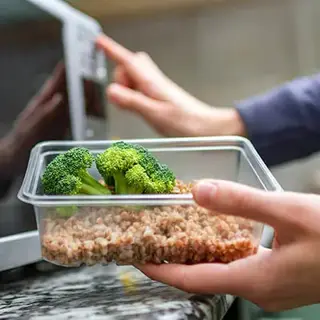Er wordt veel minder drijvend plastic op zee aangetroffen dan mag worden verwacht. Dit staat bekend als het mysterie van het verdwenen plastic. Waar is dat plastic gebleven? Het nu beschreven degradatieproces levert een bijdrage aan het antwoord op die vraag.
Vermindering van de plasticsoep
Onderzoekers verbonden aan het Koninklijk Nederlands Instituut voor Onderzoek der Zee (NIOZ) hebben verschillende types plastic blootgesteld aan ultraviolette (UV) straling. In hun publicatie in het wetenschappelijk tijdschrift Marine Pollution Bulletin schatten ze op basis van hun onderzoek dat per jaar 1,7% van de zichtbare microplastics wordt afgebroken. In minder dan 44,4 jaar gaat het om de helft van het drijvende plastic. Sinds de jaren 50 van de vorige eeuw is er veel plastic in de oceaan terechtgekomen. Een flink deel van deze plasticsoep zouden we dankzij dit mechanisme weer kwijt zijn geraakt. Het zou gaan om 7 tot 22 procent van het totaal aan drijvend plastic in de oceaan.
Onzichtbare nanoplastics
Bijna een kwart (22%) van al het drijvende plastic zou onder invloed van UV licht dus zijn verdwenen. De onderzoekers wijzen erop dat dat verdwenen plastic voor een deel bestaat uit onzichtbare nanoplastics die onvoorziene nadelige gevolgen hebben voor het zeeleven en ecosystemen. Het andere deel gaat over stoffen ‘die potentieel kunnen worden afgebroken door bacteriën’, aldus de persverklaring. Die formulering lijkt erop te wijzen dat niet onderzocht is of die bacteriën midden op zee werkelijk actief zijn.
Aandere mechanismen die optreden
Er zijn meer mechanismen die optreden. Denk aan het zonlicht dat het plastic nooit bereikt.
- Van al het plastic dat in de oceaan terechtkomt, drijft hooguit enkele procenten. Dit betekent dat zonlicht het plastic dat zweeft in de waterkolom of op de bodem licht niet bereikt.
- Drijvend plastic zinkt na verloop der tijd, omdat het door aanhechtingen als algengroei zwaarder wordt. Eind vorig jaar concludeerde een ander wetenschappelijk artikel, in Environment Science and Technology, dat sinds 2000 het aantal microplastics op de bodem van de Middellandse Zee verdrievoudigd is, en dat microplastics ingebed in het sediment niet afbreken.
Of denk aan plastic dat op een andere manier verdwijnt. Zo kan door golven en wind een deel van de micro- en nanoplastics via de lucht aan het water ontsnappen. Het wordt door de wind meegevoerd en ergens op het land gedeponeerd.
Het zijn interessante onderzoeken, maar de vraag is of we veel hebben aan deze kennis. De plasticsoep zal nooit verdwijnen. Het enige dat helpt is veel minder plastic produceren en gebruiken.



